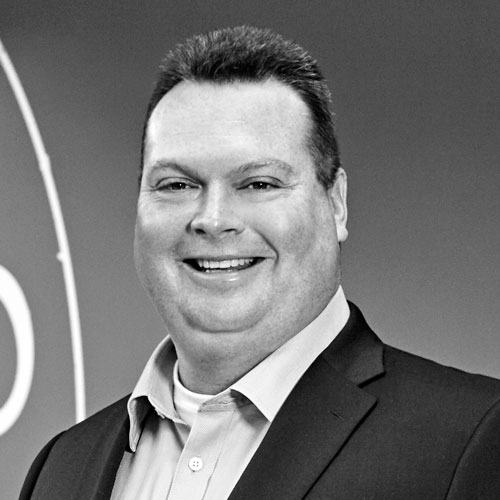It’s no secret that the increasingly global marketplace is forcing companies to change business practices or risk being left in the dust, and part of that burden falls on the general counsel. Jesse Gary, executive vice president, general counsel, and secretary of initiatives at Century Aluminum acknowledges this trend. “As companies increasingly become more globalized, do business in foreign markets, and face competition from companies operating outside the United States, an in-depth knowledge of geopolitics is becoming mandatory in the general counsel role,” Gary says.
That’s especially true in the commodities sector that Century Aluminum operates in, which touches on geopolitical issues such as trade regulation, government subsidies, foreign competition, and energy policy. Gary must stay abreast of energy prices in the United States, where the majority of the aluminum producer’s smelters—factories for smelting metal from ore—are located. He also ensures that unfairly subsidized aluminum from foreign markets doesn’t run the company out of business by leveraging cost-cutting technologies and taking calculated risks to keep its business on top.
“As companies increasingly become more globalized . . . an in-depth knowledge of geopolitics is becoming mandatory in the general counsel role.”
“As a global commodities company, the politics of Chinese production is a top issue,” Gary says. With the recent slow-down in the Chinese manufacturing sector, China is now looking to export cheaply produced aluminum that can’t be consumed within its own borders. Gary explains that China is willing to take a loss for a period of time to keep good aluminum jobs inside its borders and attempt to drive other countries’ smelters out of business. “If one person is over-subsidizing, the product is affected everywhere else. It’s a zero-sum game,” Gary says.
This means major competition for manufacturers like Century Aluminum and new challenges for its general counsel. “What that means for me, as general counsel, is strategically figuring out how my teams can help protect our business and continue to compete fairly against unfairly subsidized product coming China,” Gary says. To do this, Gary leverages the legal team’s expertise in the World Trade Organization and other trade laws with the communication expertise of the government affairs team to protect Century Aluminum’s business.
Gary’s impact extends to Capitol Hill, lobbying to secure government backing for manufacturing jobs in places where there aren’t many others available, like Kentucky, where two smelters employ 1,250 people. “These are good jobs,” Gary says. “They pay a decent wage and allow for a middle-class lifestyle.” Gary adds that the United States has been losing manufacturing jobs for years.
In addition to political acumen and lobbying, the expanding role of the general counsel position requires a thorough knowledge of new energy technologies that can creatively reduce costs. “Aluminum is basically packaged power,” Gary says. “Each of our smelters uses around the same amount of energy as the city of Cincinnati.”
To save on energy costs, Century Aluminum opened a smelter in Iceland where renewable energy sources are easy to access and plentiful. “The smelter in Iceland is one of a few in the world that is totally green,” says Gary, citing the geothermal and hydropowered plant. Hydropower can be stored in the reservoir and “banked” for future use. Both forms of renewable energy are available 24-7, which means smelters can work on renewable energy sources around the clock.
“We’re as energy conscious as you can imagine,” Gary says. “We recycle everything. We shut down and ramp back up based on energy prices. We’re looking out for every megawatt.” Century Aluminum uses cheaper, cleaner power, but it also uses legal avenues to directly access market-based power prices in Kentucky, where two major smelters are located. Gary accomplished this venture by making a risky, but ultimately successful, legal recommendation to cut ties with the current energy supplier before another one was in place.
“The trend when I first joined the general counsel profession was to take a more traditional lawyer role and always minimize business risk,” says Gary, who joined Century Aluminum as associate general counsel in 2010. “However, you make money by taking risks. It’s the job of GC’s office to facilitate the best business decision, not just the safest legal course of action.”
Running the legal counsel’s office more like an investment firm and using calculated risk to make savvy business decisions has paid off for Century Aluminum. When the two Kentucky smelters were incurring steep energy costs under the highly regulated power market, Gary’s team was forced to make a decision to stay the course and risk killing the business, or terminate the contract and hope that there was a better option out there. If they didn’t find a better contract, the business would shut down. After evaluating the odds, they made a risk-adjusted decision to terminate the contract and hoped to find a lower-cost partner.
“We worked like hell, and we found a market-price energy deal. It saved the smelters and thousand of jobs along with tens of millions of dollars in income in the region,” Gary says. “Of course it’s important to make sure proper evaluations are made, but instead of recommending the most conservative course of action, we want to take the best risk in order to support the business goal.”
That sort of mind-set—thinking like a businessperson and acting with an in-depth knowledge of foreign and national trade laws—is what keeps Gary on his toes. “It’s a really interesting time,” says Gary, referencing the changing demands of the general counsel role. “In a tough economic climate, I’m tasked with bringing different areas I oversee together to find new solutions. It’s challenging, but exciting.”

